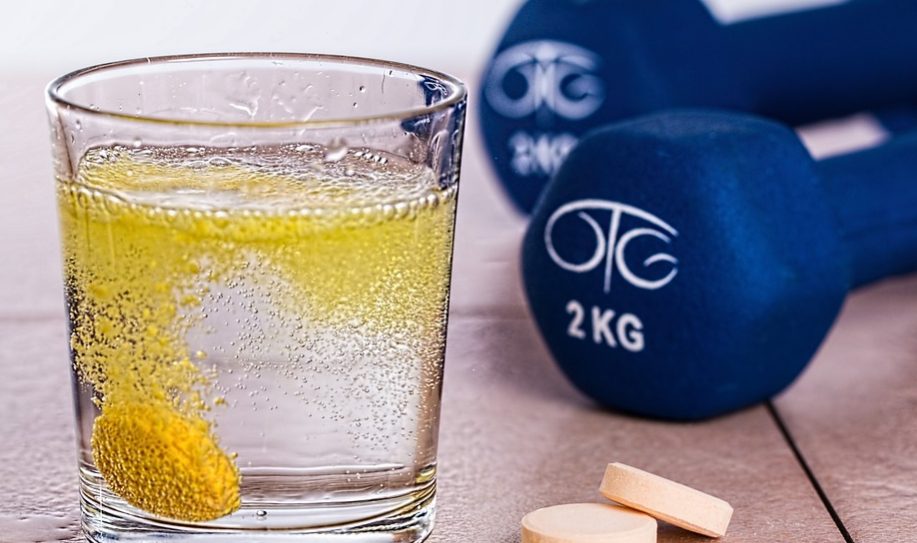
The best online fitness resource you'll ever need. We filter out the BS to ensure you meet your health and fitness goals!

The best online fitness resource you'll ever need. We filter out the BS to ensure you meet your health and fitness goals!

It seems to be a fairly silly idea to take pre-workouts too often. On the other hand, they are absolutely valuable – if you’re looking to smash a personal best on the deadlift, to sprint faster or work harder than normal, or even, for short periods, to get you going when you’re going through a busy patch.
But people use them session by session, which is foolish. Why would you overload your system regularly with the kinds and doses of stimulants found in most pre-workouts? Once a week, maybe, but every time you go to the gym?
No, thank you.
But what about people who take this proclivity for pre-workouts one step further? What about pre-workout usage on non-workout days, during fallow periods, or even when you’re not training or planning to train at all?
Pre-workouts generally make you feel fantastic – at least for the first few times or longer if you don’t overdo it. They generally contain at least one of the following, if not several, or even all: caffeine, creatine, citrulline and taurine.
This will get you practically bursting with energy. You won’t be able to sit still. If you’ve been struggling for energy or motivation, a pre-workout stimulant of this kind will light you up.
The caffeine and taurine will give you energy and mental clarity; the creatine will fuel your muscles; the citrulline will improve blood flow and help your muscles to recover.
All of this together makes a recipe for a good workout. These attributes will fire you up undoubtedly. Strength, intensity and focus will all improve.
There are, of course, stimulant-free pre-workouts. However, they won’t give you the same kick as stimulants – they literally won’t stimulate you. So they’re not what we’re talking about here, though they certainly have their place in any athlete’s arsenal.

There are certain dangerous side effects to pre-workouts when taken too often or inappropriately (like when they are not needed).
The main problem is that your body adapts to regular exposure to these compounds. The more caffeine you take, the more you can take, the more it will take to give you an effect. This means that you should use pre-workouts sparingly when you’re training. When you’re not working out, you are essentially building yourself up for a crash.
You will become reliant on the above compounds if you use them regularly, outside of training. You will need the kick they give you just to get up and out the door in the morning, to go about your daily life. However, they will stop giving you such a kick. This means that you either need to take more, raise your tolerance, perpetuate the problem, or plateau, take all those harsh stimulants to maintain equilibrium, or crash, not taking them and ending up worse off than ever.
This is reliance and addiction, in essence. It’s a little different to something like cocaine or coffee reliance.
Pre-workouts also usually contain an unhealthy amount of caffeine. Few people would argue against you drinking a coffee or two during the day. However, the doses you get from a pre-workout are far higher and more intense than you would find in your average cup of joe. This is bad for your heart, your blood pressure, and your sense of wellbeing.
Don’t be a slave to it.
Then there is the sheer cost. You can pick up a cup of coffee on your way to work for a couple of bucks. You can make one at home for a negligible amount.
Pre-workout supplements are really expensive! But, if you’re in training, looking to progress, and you take them sparingly, they are absolutely worth the financial outlay. They will last you a long time and will get you good results.
However, if you’re not in training, most of the pre-workout will be wasted. You don’t need citrulline or creatine at all if you’re not taking part in heavy resistance training or otherwise working hard physically. Caffeine can be useful in giving you a morning kick, as above, as is taurine. Both will also help you to focus, making you more efficient at work.
But, for the reasons stated above, be wary of falling into this cycle of dependency. Also, if you really need it, buy a thirty-cent energy drink. It will give you all the caffeine and taurine you can take and then some.
It’s still bad for you, but at least it’s cheaper.

I can think of plenty of reasons not to take pre-workout supplements without working out (see above – these are just a select few). I can think of no reasons why you would take them, why you would waste your money and your health.
They are more expensive than coffee or energy drinks, with the extra expense being made of completely useless things outside of a physically active or athletic context.
They are bad for you when taken regularly (again, more than a couple of times per week is a no-go, and even less is better). And they will trap you in a cycle of reliance, of highs and crashing lows, faster than anything legal on the market (and faster than some illegal things, I’m sure).
Please don’t do it. Instead, use pre-workouts when they’re meant to be used, for what they are meant to be used – pre-workout, before a big one, when you need the extra kick. Then, the rest of the time, rely on willpower and a tot of black coffee.
You’ll be far better off for it in the long run, trust me.